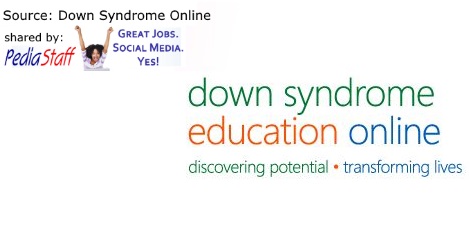SLP Corner: Speech Intelligibility and Childhood Verbal Apraxia in Children with Down Syndrome

Editor’s Note: We originally published this article with permission back in October of 2013. We reprint it here for its enduring value to clinicians
by Libby Kumin; Source: Down Syndrome Online
Many children with Down syndrome have difficulty with speech intelligibility. The present study used a parent survey to learn more about a specific factor that affects speech intelligibility, i.e. childhood verbal apraxia. One of the factors that affects speech intelligibility for children with Down syndrome is difficulty with voluntarily programming, combining, organizing, and sequencing the movements necessary for speech. Historically, this difficulty, childhood verbal apraxia, has not been identified or treated in children with Down syndrome but recent research has documented that symptoms of childhood verbal apraxia can be found in children with Down syndrome. The survey examined whether and to what extent childhood verbal apraxia is currently being identified and treated in children with Down syndrome. The survey then asked parents to identify certain speech characteristics that occur always, frequently, sometimes or never in their child’s everyday speech. There were 1620 surveys received. Survey results indicated that approximately 15% of the parents responding to the survey had been told that their child has childhood verbal apraxia. Examination of the everyday speech characteristics identified by the parents indicated that many more children are showing clinical symptoms of childhood verbal apraxia although they have not been given that diagnosis. The most common characteristics displayed by the subjects included decreased intelligibility with increased
Read the Rest of this Article on Down Syndrome Education Online
PediaStaff is Hiring!
All JobsPediaStaff hires pediatric and school-based professionals nationwide for contract assignments of 2 to 12 months. We also help clinics, hospitals, schools, and home health agencies to find and hire these professionals directly. We work with Speech-Language Pathologists, Occupational and Physical Therapists, School Psychologists, and others in pediatric therapy and education.
